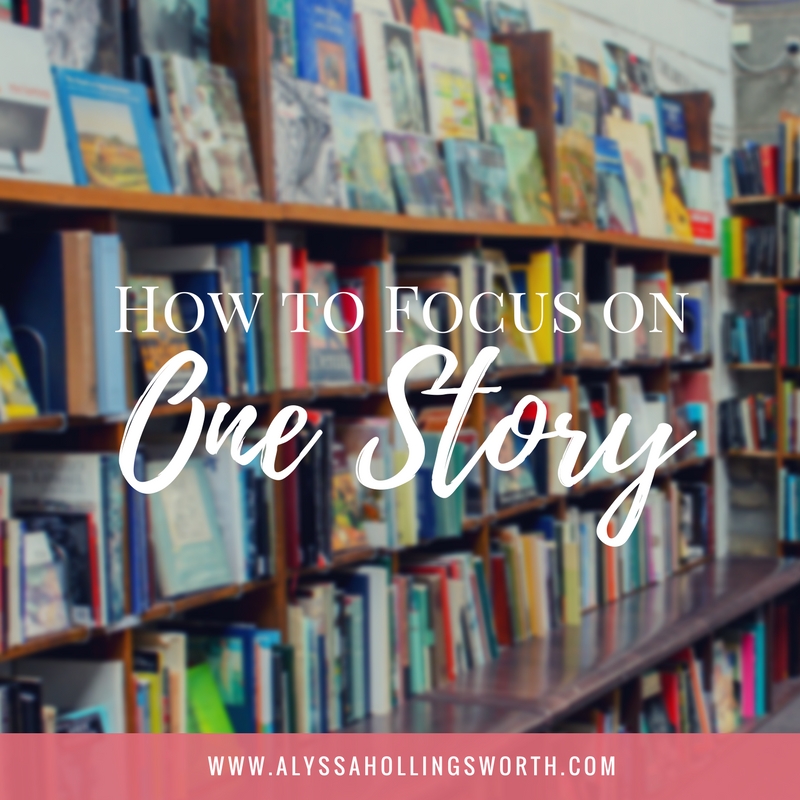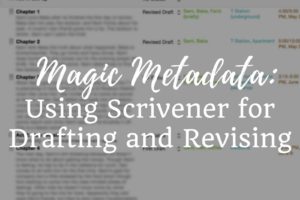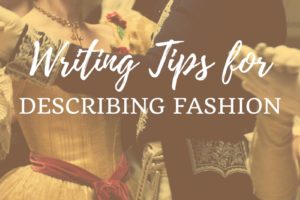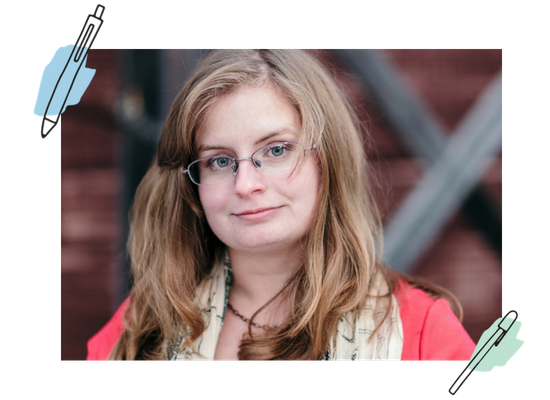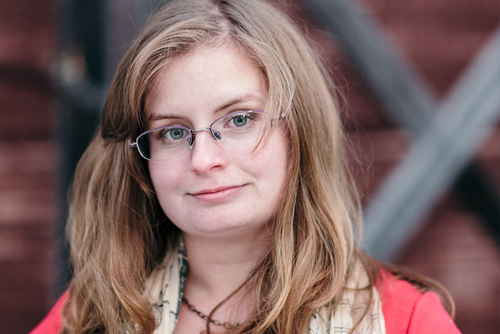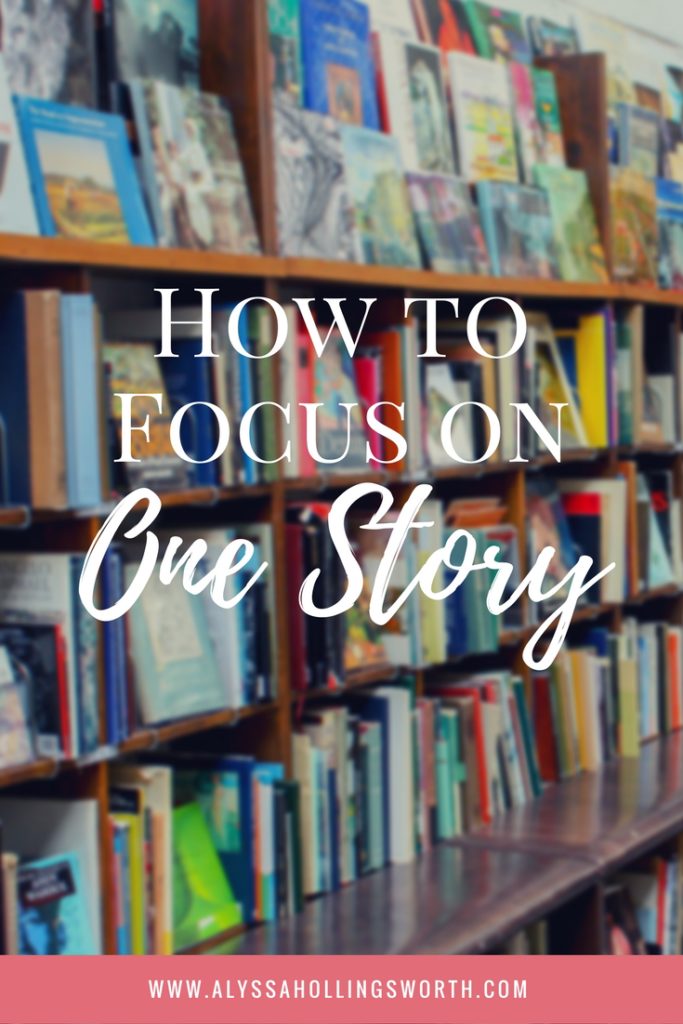 A lot of my novel-mentees struggle to stay focused on one story at a time. I get that. I mean, there’s so many other sparkly things out there to explore!
A lot of my novel-mentees struggle to stay focused on one story at a time. I get that. I mean, there’s so many other sparkly things out there to explore!
That abundance of story ideas might be a good thing far down the road, when you’re churning out multiple books a year. But early on, it can be dangerous. It’s always tempting to ditch whatever piece you’re working on for the newest, shiniest idea. And that’s what you want to avoid, particularly if you’re a chronic follower of random, time-device wielding rabbits.
Here are some tricks I use when I hear the siren call of another project, especially at an inopportune moment:
- Remind myself why I love my current story. One of my writing professors used to make us write out a list of 30 scenes we were excited about in the story. The idea was to get them down, then figure out which order works best, and then try to move between them as quickly as possible during the draft. This might be a fun way for you to think ahead and stay motivated about this story.
- Cheat a little. Sometimes, even if we prefer to write linearly, it’s appropriate to jump ahead to a scene we’re really excited about. Often when we’re most excited, the scene will come the smoothest. It will take revision (sometimes a lot of it) to make sure the scene fits in the overall flow once you have your draft, but this can be an invigorating exercise to remind you why you love this story and are excited to finish it.
- Keep a notebook. Any time I have a story idea that threatens to derail my concentration, I write it down in a notebook and leave it there. I’m not allowed to daydream about it or write anything unless I have a moment of absolute clarity for a scene or plot point — and if I do, I have to just jot that down and leave it again.
- Surround myself with story aesthetic. In the early parts of drafting, I’ll spend a lot of time creating a playlist for my story, building a pinterest board, making graphics (like desktop wallpapers), and playing dress up games (it sounds weird but it’s really fun way to visualize your characters when you can’t draw). In the past, I would even make a physical story board with inspirational pictures and quotes! I’m a visual and audio learner, so having a cellphone background from a story or a playlist I can switch on while driving helps me stay in the mindset of the story I need to work on.
- Outline. Extensively. This is 100% my style preference, but I’m a huge outliner. I used to be afraid of outlining because I didn’t want to “spoil” it for myself. But what I’ve learned about myself is that I write more confidently when I know exactly where each scene is going. If I don’t know what direction I’m headed, I stall out, get lazy, and then wander off somewhere else.
- Draft fast. Back in the far-off days, I would take years to finish the first draft of a manuscript. This was partially because of the faulty belief that finishing the manuscript was the time-consuming part. Again, as I grew into writing, I realized that I tend to be much heavier (and more effective) in revision. It was in my best interests to make a crazy detailed outline and do a lot of prep work, draft in a month or two, and then return for revisions later. If I took a long time on the first draft, I would get bored and want to move on.
- Intentional breaks. I wouldn’t have done this as a young writer, but it’s something I do a lot now: I’ll have two projects going at once. Ideally, they’ll be at different stages of production. For example, right now while I’m in the final-final edits of my debut, I’m also in the early plotting/brainstorming part of Book 2. When I need to take a break from one project to let my brain rest, I can switch into a different mode to work on something different. Again, I think this is something I got better at after I’d already been through several story projects, so it might not be the wisest thing to play with, but it is something to keep in mind as an option.
I’m curious: What do you do to keep focused, or when do you find yourself most likely to wander into another project?

